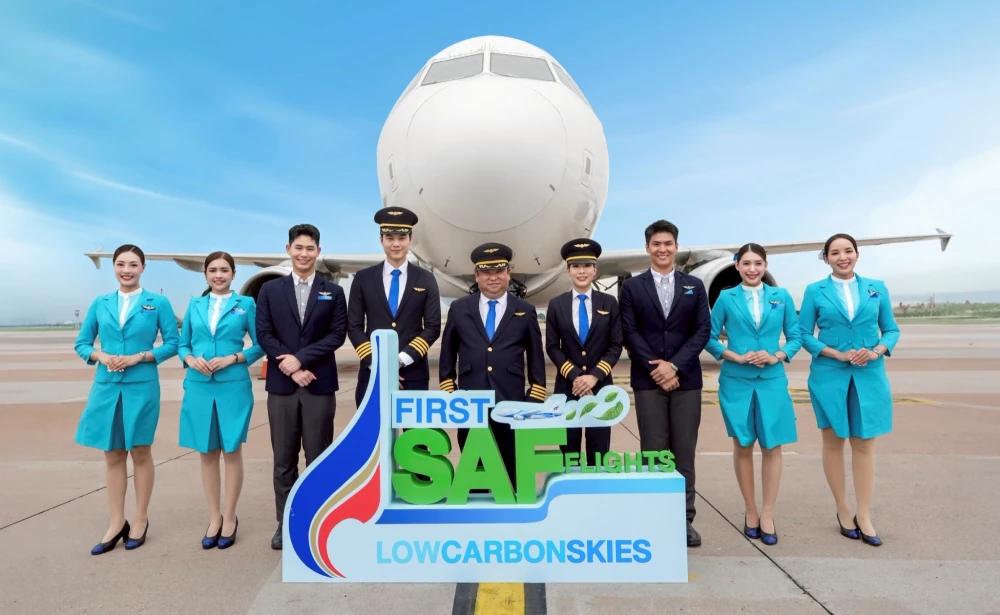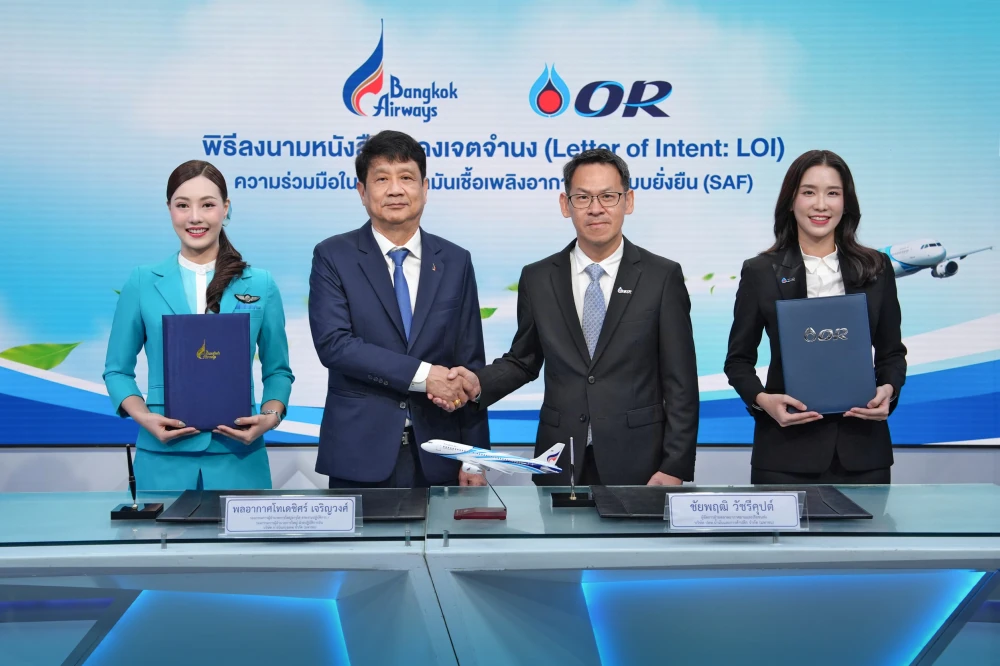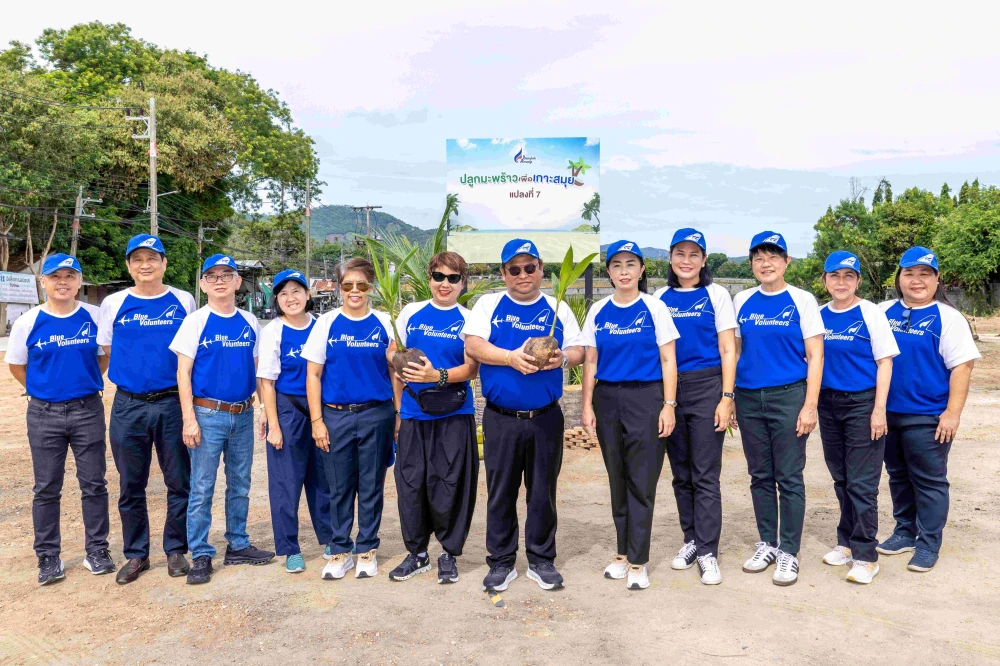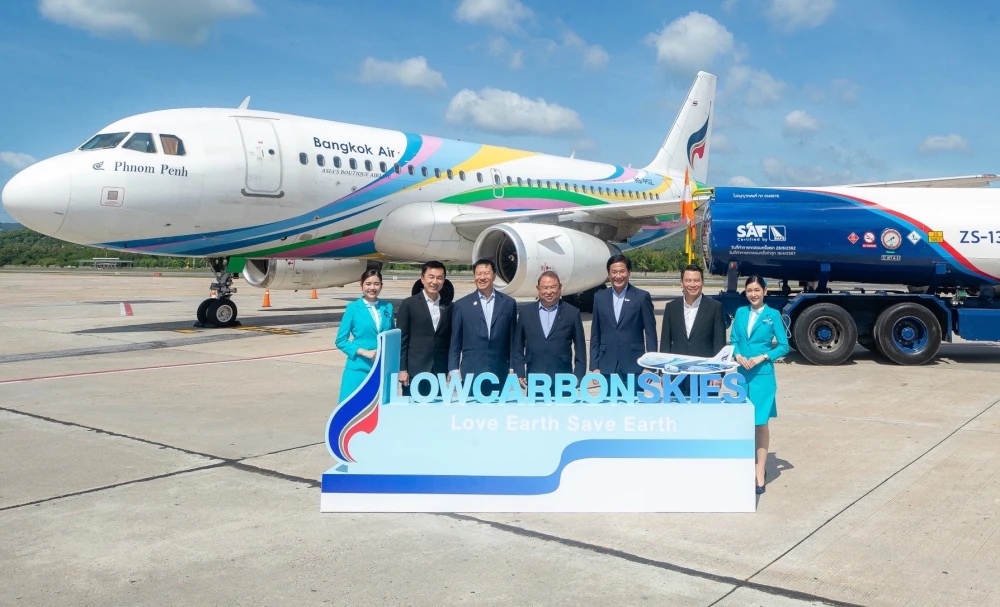

Environmental Performance
Commitment / management guideline
Low Carbon Skies by Bangkok Airways
Bangkok Airways is committed to creating a sustainable aviation future through our "Low Carbon Skies" campaign, reflecting our environmental responsibility and care for our planet.
We believe that beautiful travel should not come with an environmental burden. Through operational efficiency improvements and the use of clean energy, we are working towards our goal of achieving net zero carbon emissions by 2050.
Join us in creating sustainable skies so that future generations can experience the beauty of our world just as we do today.
Climate Crisis Management
Target
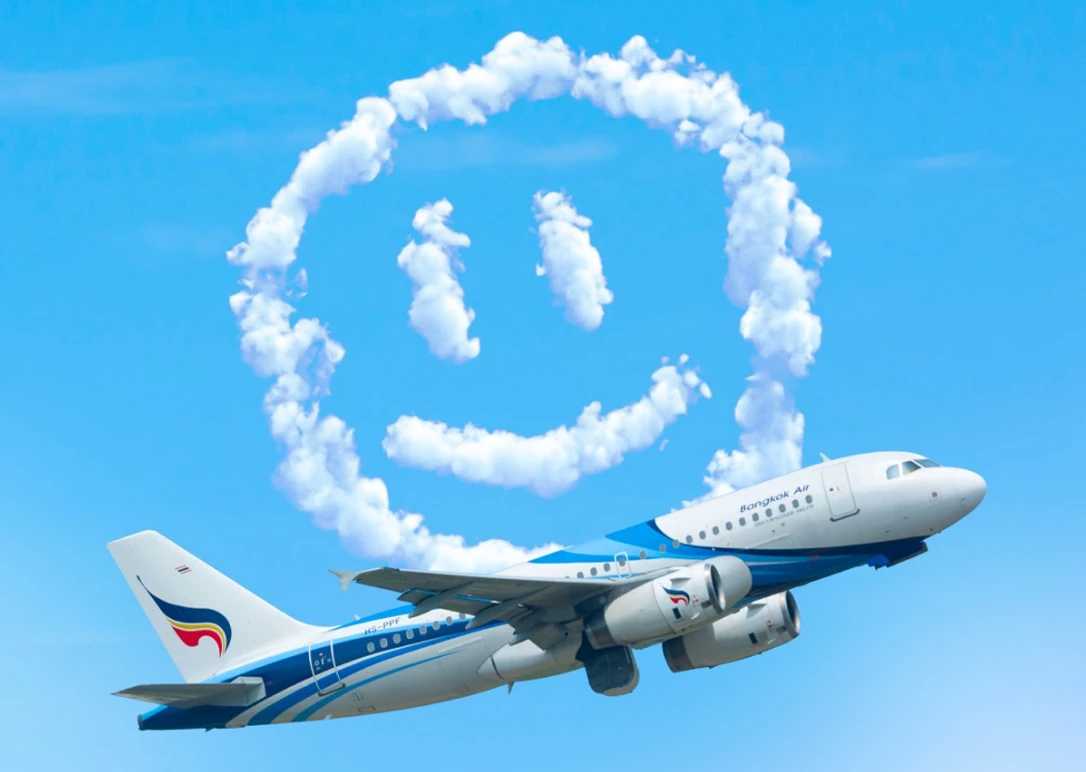
Management Guideline
In line with the strategy to foster participation in adaptation and operational transformation to reduce environmental impact, the Company launched the “Low Carbon Skies by Bangkok Airways” campaign in 2024. The initiative aims to reduce carbon dioxide (CO₂) emissions across all business operations, particularly in flight operations, which account for the largest share of the airline’s total emissions. This effort is aligned with the global aviation sector’s mission and goal to achieve Net Zero Carbon Emissions by 2050.
Operating Results

Carbon Offsetting and Reduction Scheme for International Aviation Project (CORSIA)
The Company reports data on amount of carbon emission to CAAT continuously each year under International Civial Aviation Organization CORSIA Project, to support achievement of goal to maintain net carbon emission of internal civil aviation. The amount of carbon dioxide to be offset in 2023 is zero tons.
Explore More
Fuel Efficiency Project
The Company conducted studies on operational improvement so that each flight is operated with efficient use of aircraft fuel to reduce carbon emissions.
- 1Single Engine Taxi Out
- 2Single Engine Taxi In
- 3Idle Trust Reverser
- 4Optimum Flap
- 5Aircraft Weight Minimization
Furthermore, the Company has also taken actions in other areas to reduce carbon emissions as much as possible while operating flights, e.g., planned and operated flights using Modern Air Navigation; planned and operated Extended Twin Operations (ETOPS); performed engine wash on schedule; and used data from flight operations for analysis in order to improve and develop flight efficiency to enable reduction of carbon emission volume. The Company also studied the use of Artificial Intelligence/Machine Learning to increase efficiency and accuracy of data analysis under terms and regulations for flight operation with the highest safety.
Amount of Carbon Dioxide Reduced (tons) 2024
| Operation Improvements | Jan | Feb | Mar | Apr | May | Jun | Jul | Aug | Sep | Oct | Nov | Dec | Total |
|---|---|---|---|---|---|---|---|---|---|---|---|---|---|
| A | 114.39 | 125.45 | 107.12 | 71.42 | 103.02 | 84.37 | 71.42 | 199.40 | 71.42 | 92.27 | 87.22 | 183.28 | 1,310.77 |
| B | 111.55 | 91.96 | 92.59 | 78.68 | 62.25 | 58.78 | 147.26 | 88.80 | 58.78 | 60.67 | 54.35 | 49.30 | 954.95 |
| C | 78.68 | 79.32 | 85.32 | 48.66 | 54.67 | 52.46 | 78.68 | 53.09 | 56.88 | 60.04 | 48.66 | 44.87 | 741.34 |
| D | 46.77 | 50.24 | 49.61 | 28.76 | 32.86 | 30.97 | 30.65 | 31.60 | 28.44 | 33.18 | 27.49 | 25.91 | 416.49 |
| E | 23.59 | 22.93 | 21.94 | 19.18 | 17.39 | 16.76 | 18.58 | 20.21 | 18.39 | 18.50 | 18.01 | 23.71 | 239.19 |
| Total | 374.98 | 369.90 | 356.58 | 246.70 | 270.19 | 243.33 | 346.59 | 393.09 | 233.90 | 264.66 | 235.73 | 327.07 | 3,662.74 |
A = Single Engine Taxi Out
B = Single Engine Taxi In
C = Idle Thrust Reverser
D = Optimum Flap
E = Aircraft Weight Minimization
The Company’s Greenhouse Gas Emissions
Remark: The greenhouse gas emissions data verifier for the Company in 2023 and 2024 is ECEE Co., Ltd., categorized by the following scopes:
| 2023 | 2024 | |
|---|---|---|
| Total Greenhouse Gas Emissions (tCO2e) |
293,222.00 | 362,814.00 |
| Greenhouse Gas Emissions – Scope 1 (tCO2e) |
288,794.00 | 318,255.00 |
| Greenhouse Gas Emissions – Scope 2 (tCO2e) |
4,428.00 | 4,759.00 |
| Greenhouse Gas Emissions – Scope 3 (tCO2e) |
Assessment not conducted this year | 39,800.00 |
Waste Management
Target
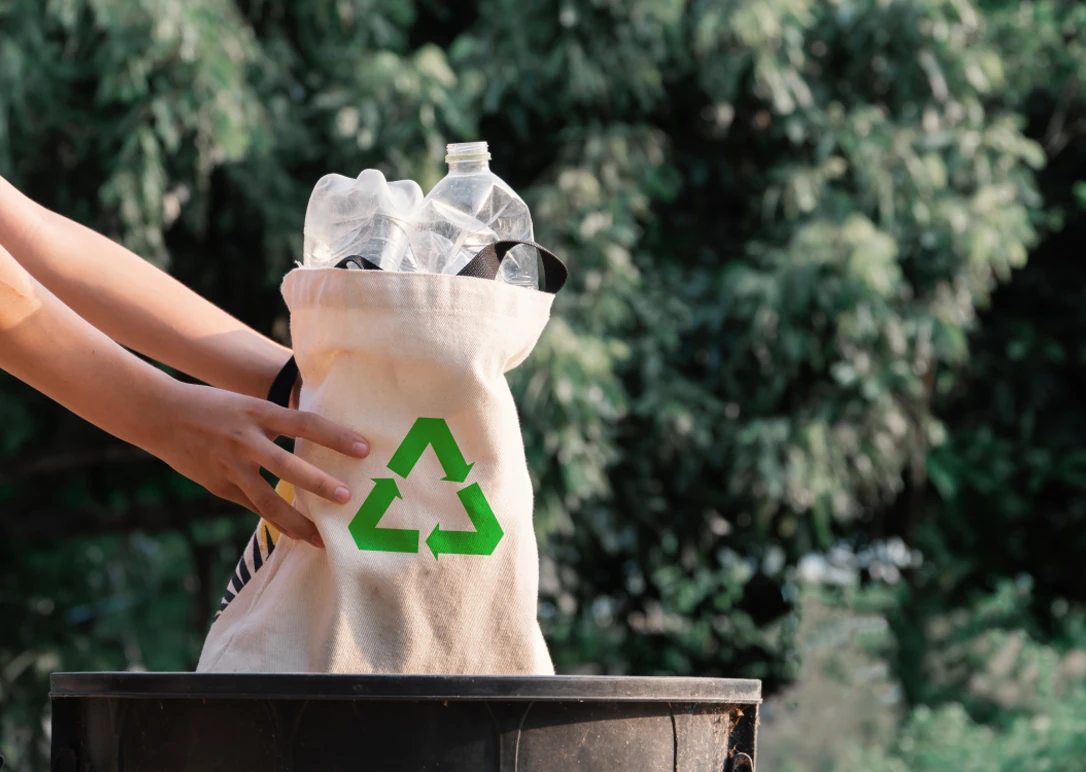
Management Guideline
The Company acknowledges the importance of effective and environmentally responsible waste management. A comprehensive waste management system is being developed in alignment with Circular Economy principles, aiming to minimize environmental impact, maximize resource recovery, and achieve zero landfill disposal by 2050. In parallel, the Company fosters a sustainability-driven organizational culture across all operational levels to embed long-term environmental responsibility into its core business practices.
Operating Results

Amount of Waste Sorted for Recycling
Waste generated at the Head Office Building (Bangkok Airways Operations Complex or BAOC), office facilities, and passenger lounges at Suvarnabhumi Airport, Samui Airport, Sukhothai Airport, and Trat Airport, as well as from in-flight services managed by Bangkok Air Catering, was categorized and summarized as follows:
Total Waste Generation
| 2024 | 2023 | 2022 | |
|---|---|---|---|
| Total Waste Generated (kg) | 440,100.87 | 399,399.80 | 318,698.00 |
| Non-Hazardous Waste (kg) | 440,100.87 | 399,144.10 | 318,698.00 |
| Hazardous Waste (kg) | 0.00 | 255.70 | 0.00 |
Volume of Waste Reused/ Recycled
| 2024 | 2023 | 2022 | |
|---|---|---|---|
| Total Waste Generated (kg) | 12,813.44 | 19,426.10 | 12,813.44 |

Inflight Waste Journey
The Company provides beverages and meals to in-flight passengers and has made plans to efficiently manage waste, increase the recycling rate, and reduce the amount of waste sent to landfill. The total amount of waste collected, separated, and sent for recycling in 2024 can be summarized as follows:
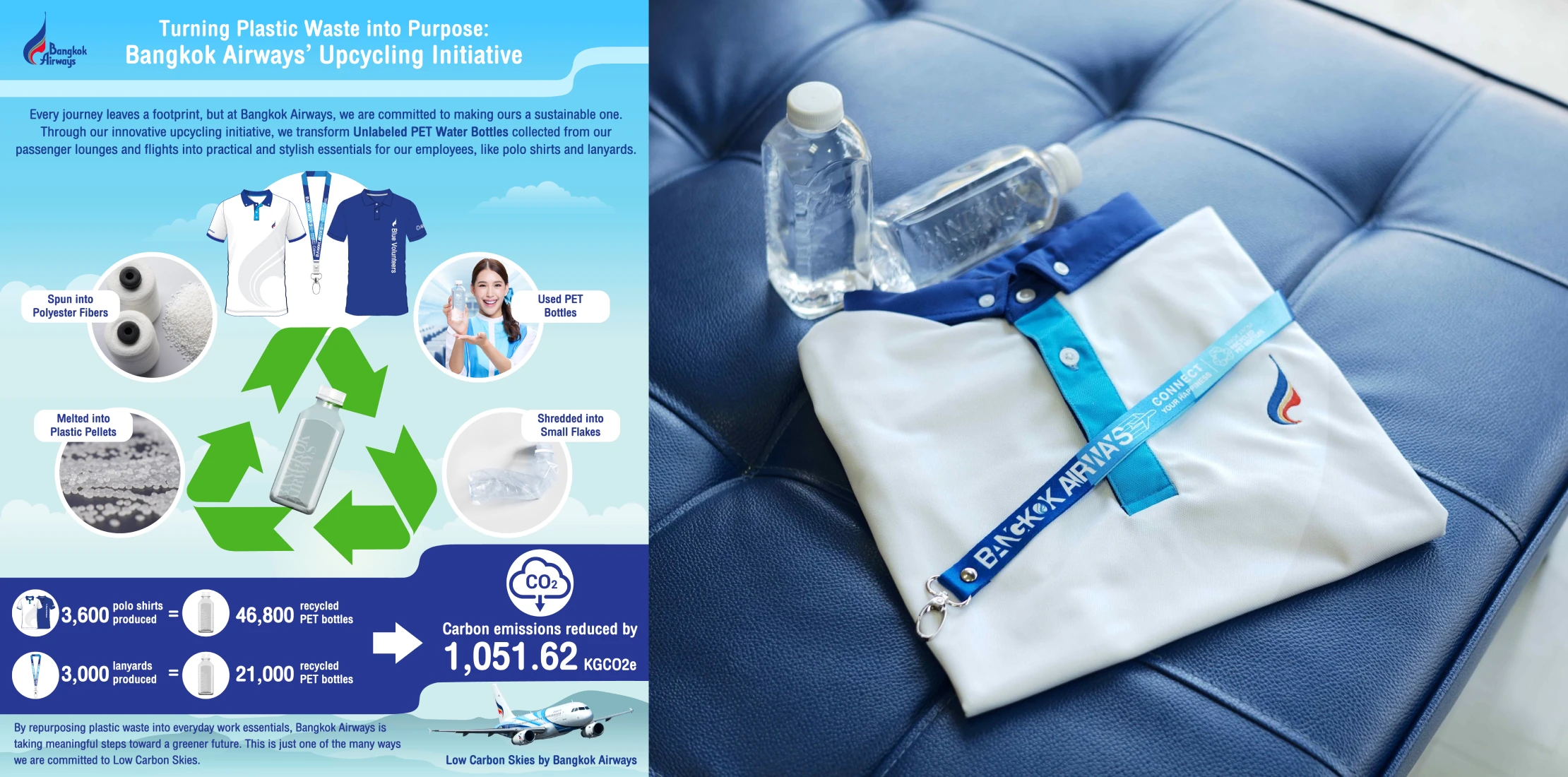

Recycle/Upcycle Waste from Business Operations
Started in 2023, uniforms no longer in use were upcycled into new products without creating more waste, in accordance with the Circular Economy concept, and were reused in business operations.

Waste Management – Bangkok Airways Boutique Series 2024
The Company promotes sports tourism through the “Bangkok Airways Boutique Series 2024,” a marathon series held in Samui, Chiang Mai, and Sukhothai. Continuing the concept introduced in 2023, Bangkok Airways partnered once again with the leading fashion brand Asava to produce limited-edition running shirts. Each design reflects the unique identity and cultural characteristics of the host locations, interpreted through Asava’s signature visual language.
As part of the Company’s environmental commitment, the shirts were produced using fabric made from recycled PET plastic bottles, combining sustainability with performance and design. This initiative encouraged participants to contribute to plastic waste reduction through their involvement. In addition, commemorative medal lanyards and tote bags were made from recycled PET fibers, while the medals were produced using recycled electronic waste.
To further reduce environmental impact, biodegradable materials such as paper plates and cups were used as food containers throughout the event. Waste segregation was promoted by providing clearly labeled paper-based recycling bins throughout the venue, supporting proper post-event waste management practices.



Promoting Awareness of Efficient Resource Utilization
The Company has implemented awareness signage campaigns to encourage the efficient use of resources, including electricity, water, and paper. These efforts aim to foster employee engagement and promote environmental consciousness through everyday practices. In addition, the Company has established the ESG “PG Heroes” team, consisting of employees selected for their enthusiasm and interest in ESG communication. These representatives help raise internal awareness by participating in short-form video campaigns that communicate ESG values throughout the organization.
Efficient use of resources and alternative energy
Target
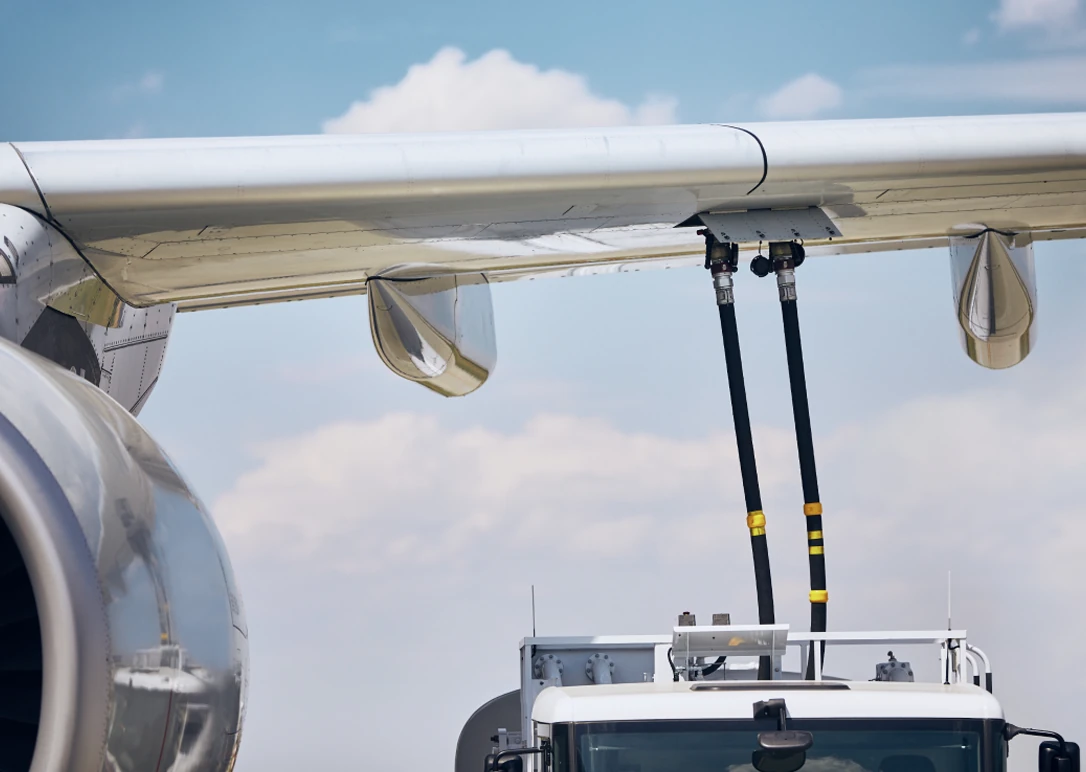
Management Guideline
The Company conducted studies and prepared to use Sustainable Aviation Fuel (SAF) instead of Jet-A1, as both have the same chemical properties, meaning there is no need to modify aircraft engines when using this alternative biomass fuel.
Currently, the Company is closely monitoring guidelines for using alternative fuel in order to operate sustainable flights in alignment with the government’s policy and the readiness of fuel service providers. Thailand expects to begin using 1% alternative fuel in 2026, during which the Company is in the preparation phase to implement this plan in line with international measures and policies on sustainability cooperation.
Operating Results
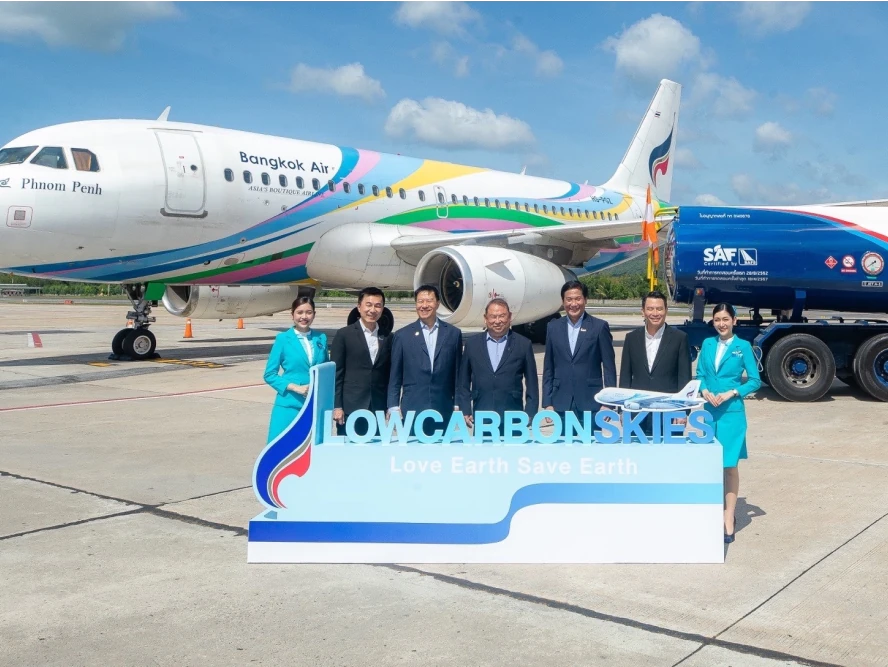
The Company conducted a test flight on the Samui–Bangkok route using Sustainable Aviation Fuel to demonstrate its intention to support the use of clean energy and reduce the release of carbon dioxide into the atmosphere, in line with the global aviation sector’s goal to achieve Net Zero Carbon Emission by 2050 and in compliance with measures set by ICAO and IATA.
Pollution Management
Target
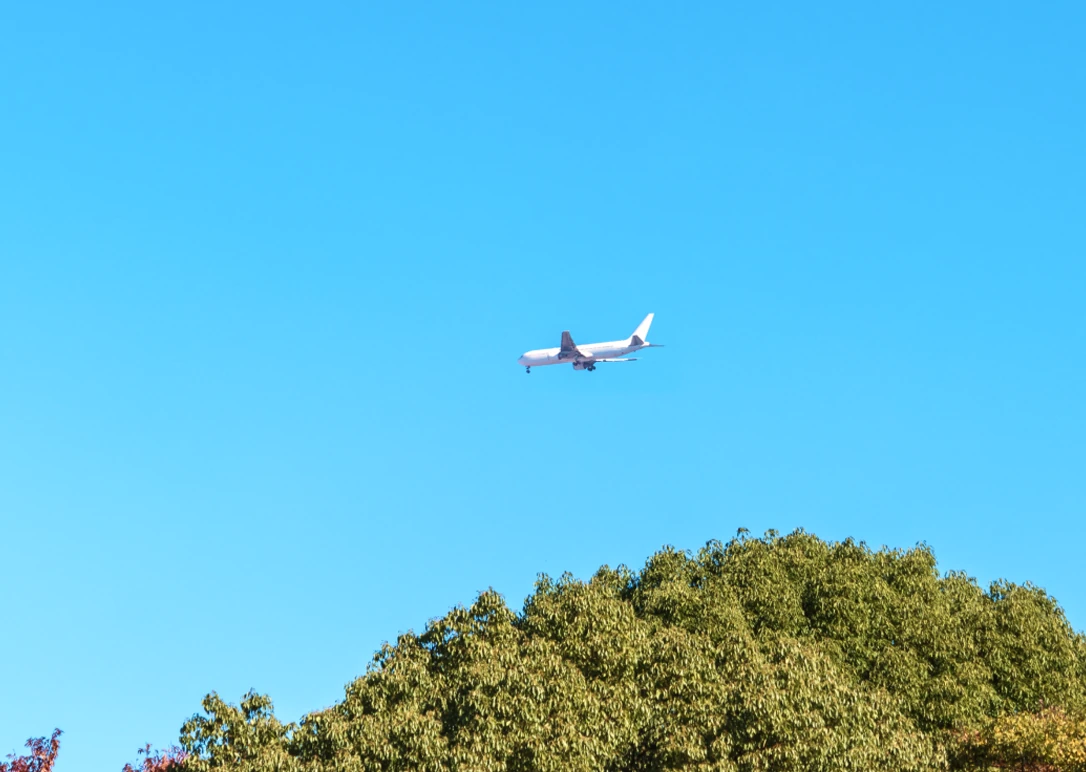
Management Guideline
The Company recognizes its responsibility in protecting the environment and mitigating the environmental impacts of its aviation-related operations, both in air transport services and airport management. It is committed to implementing systematic and effective pollution management across all areas, including control of aircraft emissions, noise pollution from aviation activities, water pollution from ground operations, and waste-related pollution. These efforts are carried out through continuous improvement of operational processes, consideration of environmentally friendly technologies, and collaboration with relevant stakeholders. The Company strives to comply with international environmental standards and to support Thailand’s sustainable development goals, while maintaining a balance between business growth and environmental conservation for the well-being of surrounding communities and society at large.
Operating Results
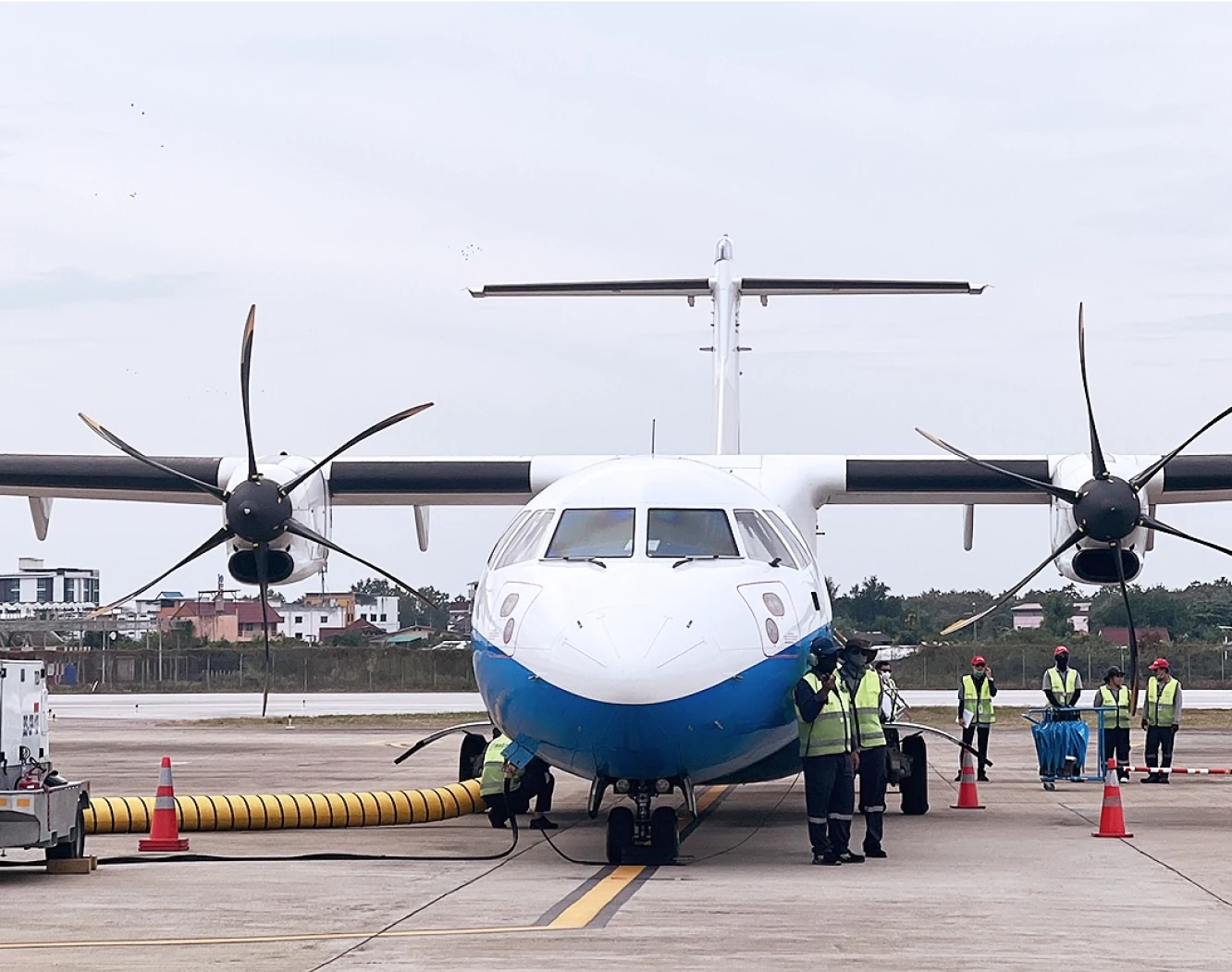
In 2024, the Company prepared a report on compliance with environmental mitigation and monitoring measures, referencing the development and improvement phase of Sukhothai and Trat Airport. The report included assessments of key environmental parameters, such as air quality, noise levels, soil resources, drainage and surface water quality, tap water quality, waste management, land use, wildlife resources, and aquatic biodiversity. Overall, the environmental quality monitoring results were within applicable regulatory standards, with the exception of certain parameters related to wastewater and tap water quality (during specific periods of the development and improvement phase of the Sukhothai Airport).
